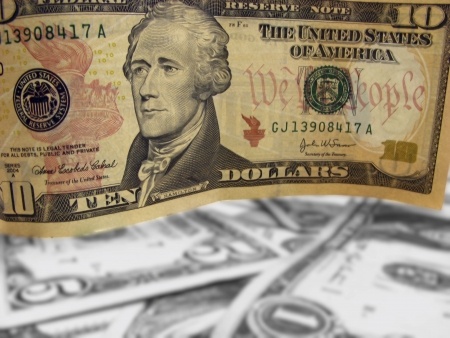1 Banks are some of the most important and powerful businesses in the world. Some people may think a bank is just a place to save money, or to store it for later use. This is an important function of banks, but it is not their only function. People don’t just use banks to save money. Many people borrow money from banks, but you probably already know that. What might be surprising is that banks also borrow money from people, lots of people. Ultimately, a bank is a business. And every business wants to do one thing: make money. A bank is only different from other businesses because it doesn’t sell products to make money or turn a profit. A bank uses money to make more money.
2 Keeping a lot of cash on hand can be dangerous. Thieves might want to rob a house if they know that there will be several thousand dollars hidden in a mattress inside, or even in a safe. If banks didn’t exist, people would have to keep all of their money in their homes, or hide it in other secret locations. People are also more tempted to spend a lot of money if they have a lot of money with them. These are two reasons to save money in a bank. It can help keep your money safe from burglars, but it can also keep your money safe from yourself.
3 Most people don’t have enough cash to buy expensive things like cars and houses. A bank can lend large amounts of money to people so that they can afford to buy cars, trucks, houses, boats, businesses, or even airplanes. Banks also lend money to other businesses, not just individuals. That doesn’t mean that just anybody can walk into a bank and leave with enough money to buy a new home. People have to meet a lot of requirements to get a bank loan. Banks will usually only make larger loans to people with good credit. A person with good credit has a history of borrowing money and repaying it on time. Lending money is a bank’s main business. Banks turn a profit by charging interest on the money they lend. For example, a person that borrows $1000 from a bank may have to pay the bank back $1100 or more. The bank gets to keep the extra money as profit.
4 The really interesting thing about banks is where they get the money that they loan people and businesses. That money comes from everybody who puts money into a bank, or all the bank’s depositors. A bank pools all of its deposits together to have enough money to make big loans. So how do you get your money back from the bank if they have lent it to someone else? Well, if everyone tried to get their money at once, the bank would not have enough money to pay each person. But actually, only a small amount of people will usually withdraw money at the same time. Some people still think it’s risky to deposit money into a bank account. What if everybody did try to withdraw their money at the same time? What if lots of people borrowed money from a bank, but they never paid it back? These things have happened in the past, and some people who have trusted banks with their savings have lost their money. Today, banks have lots of regulations to make sure that people won’t lose their money. So even though it is possible for a bank to run out of money, it probably won’t happen.
5 Banking is a vital business that affects the entire world. Everyone has to use money. Most people don’t want to keep a house full of cash, and most people don’t have enough cash to buy a new house. Those are the two major problems that banks have solved. Banks help people by solving those problems, but banks also help themselves by solving those same problems. Banks borrow money so that they can lend money, and that’s how they make money.





